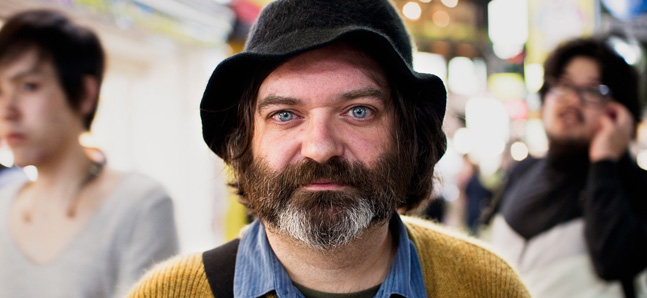
Posted: Fri Jun 07 2013
‘Do you want to do this in English or Japanese?’ Jim O'Rourke asks as we sit down in an old-school coffee shop in Shinjuku. It's been five years since the multi-instrumentalist – a veteran of the Chicago and New York improv scenes, not to mention a Grammy-winning producer (for Wilco's 2004 album A Ghost is Born) and former member of Sonic Youth – moved to Tokyo, and he confesses that he now spends more time speaking the local brogue than his native tongue.
‘I always liked Japan more than any other country,’ he admits, estimating that he'd visited the country something like 50 times before finally moving here. Since arriving, he's kept himself busy as a producer for hire, while working on his own solo material (most recently the 2009 album The Visitor) and maintaining a regular presence on the local live scene. You might catch him playing with avant-garde icons such as Keiji Haino and Merzbow, sitting in with visiting jazz musicians including The Thing, or performing in his regular band with keyboardist Eiko Ishibashi, bassist Toshiaki Sudoh and drummer Tatsuhisa Yamamoto. Last year, he was also lined up to curate the second day of Tokyo's I'll Be Your Mirror festival, only for the event to be ignominiously pulled at the last minute due to poor ticket sales.
Notoriously media-shy, O'Rourke has broken cover today to talk about a series of concerts that he'll be playing at SuperDeluxe later this month. Over the course of six days, he'll revisit material from various points in his career, including college compositions and two of his best-loved solo albums (the instrumental Happy Days and Bad Timing), as well as treating audiences to the premieres of some new (and not-so-new) pieces. And, he admits, most of it isn't anywhere near ready yet. His hangover probably isn't helping, either – the result of sinking an entire bottle of a saké called Taxi Driver the night before. ‘I woke up this morning and felt like Travis Bickle,’ he says. ‘It was pretty strong.’
Is that your tipple of choice?
I only drink nihonshu. Other stuff just gets me drunk way too quick. And I actually like nihonshu a lot: I can drink a whole bottle of it and be fine. One of the best things that ever happened in my life was to start drinking that stuff. [Laughs.] It shuts my brain off. I never took any drugs, so until I moved here I could never get my brain to shut the hell up: it would be thinking about work no matter what I was doing, and I couldn't go to sleep because of it. Now I can actually stop work for the day.
Do you think you're more mellow as a result of that?
I don't know if I'm more mellow. [Pause.] I just stop thinking about work for a bit. It's new and exciting. [Laughs.]
Sorry to drag the conversation immediately onto the subject of work, then, but… When I talk to friends who haven't heard of you before, pretty much their first reaction is: well, what does he do for a living? What are your main earners?
For me? Basically, working my ass off for the last 20 years. I make more of a living based on what I did 20 years ago than what I do now. [Laughs.]
Just from royalties?
Yeah, yeah. I mean, it's not like it's huge or anything, but… Actually, the luckiest things have been the fact that sometimes when I produce other people's records, I help write the songs, and those records obviously sell a lot more than anything I ever did. One thing might only be 25 cents a month, but if it's 200 of them, it eventually adds up to enough to pay the bills. I tried to move here about 15 years ago, and I failed completely – I didn't understand a word, I was too young, I didn't have any money. But I kind of knew in the back of my head I was determined to do it, and I just saved for ten years – and luckily those were the ten years when I was doing the most high-level work, doing major label bands and stuff like that.
Was there a sense when you came here that you wanted to make a clean break with all the touring?
I didn't want that life any more. I understand why people do it, but if you think about it: okay, say you have a show in London. It takes one day to get there, it takes another day to get back, you're probably going to have to add another day in there, and then there's the day of the show. So that's four days for one hour. It's just not worth it any more. When you're young, it's exciting: you go places, you meet people and blah blah blah, but I did it for 25 years. Why would I want to keep doing that? Especially for myself – I'm not really interested in playing shows, I'd rather make things in the studio.
Really?
Oh yeah. If I didn't have to ever play a show again, I'd be happy.
Anyway, let's talk about these SuperDeluxe gigs you've got coming up. I can imagine how you might go about preparing for something like the Happy Days show, but what about the '80s tape and tabletop guitar pieces – stuff you haven't played in two decades?
For the tabletop thing, by actually remaking the kind of guitar I used to use in the '80s – because it had pick-ups everywhere and switches. When I'm done remaking it, I have to start playing it and practising it. The string quartet score, unfortunately half of it's missing, so I've been having to rewrite from memory what it was. I don't have the tape any more – but the tape part for that is actually just oscillators. Each string goes into its own ring modulator, and then there's a control frequency for that. Luckily I still have the notes, but I have to remake the four-channel tape for that. Some of the old tapes, it's just cleaning them up.
You've got a lot of new material lined up, too. Were you trying to make sure that the gigs didn't all end up being too backward-looking?
No. In a way, I would rather have done more old stuff, because it would be easier to prepare.
Is there any reason why you didn't?
There's not that much of it left. I used to have a habit of throwing everything out.
What form did that old stuff take?
Lots of scores. I stopped writing scores, basically, during college, when I realised that you'd never get to hear these goddamn things, but I used to have tons of them. I never thought that I'd be doing something like this – not that it's a big deal or anything, but I never thought I would need them. The Big Band [featuring jazz veterans including Akira Sakata and Kazutoki Umezu] is just something I always wanted to do, and I'm kind of going off notes that I made over the years. I'm still working on that one: I'll probably finish all of these things an hour before soundcheck. I have a bad habit of not stopping. [Laughs.]
I'm interested that you're doing Happy Days and Bad Timing but not, say, [song-based 2001 album] Insignificance…
I'm sure people would probably be happier if I was doing more of the song things, but I kind of want to keep that separate, because I'm almost done with the next song record – after 12 goddamn years.
This is songs with lyrics and everything?
Lyrics and singing and rude, rude subjects. I've recorded, like, five of them already, and I just won't finish them. I don't know: probably this year, I'll finally put it out, and then I really want to do the band show, really properly. The band show will probably be fairly loose – which is how I usually do it, actually. I don't tell the band which song we're going to play until we're about to play it on stage; I don't do setlists or anything like that.
So who's in the band?
It's Tatsushisa [Yamamoto], and Ishibashi Eiko, and Sudoh Toshiaki. It's the same band as Eiko's band. Sudoh, I've also known for years and years. He used to be the drummer in Melt-Banana.
One of many…
Well, he was the first. He was the original drummer, which is how I know him, because I did their second album. What was it, '94, '95? I've known Sudoh all those years, but he's an amazing bass player – he's great.
When you read music magazines like The Wire, they often make it seem like there's a specifically Japanese sensibility that musicians have. Do you think that there's any real difference?
Oh, sure. With that kind of stuff, it's swing, just a sense of swing. [Looks coy all of a sudden.] Don't print this. [REDACTED.]
So the musicians you've gravitated towards here are kind of the exceptions?
Yeah. I'm not saying some musicians are better, it's just their sensibility is. I don't like Musicians, you know what I mean? They like their instrument – I don't understand that. I don't understand liking your instrument: it's just a pain-in-the-ass thing you have to use in order to do what you want to do.
Is there any music you could listen to every day?
I listen to The Necks almost every day. I'm crazy about them – I've been a fan since their first record. Mostly I just listen to electronic music.
What kind of stuff would that be?
Mostly old stuff. There's one guy named Roland Kayn who I listen to pretty much every day. You know, there are the famous people like Pierre Henry, who I listen to a lot, and I still get new records by my friends – if Kevin Drumm has a new record, I'll get it – but otherwise, I kind of listen to the stuff I liked as a kid. I never understood, just because something's new, why I should listen to it? I'd rather listen to Led Zeppelin than some new rock band. I can listen to a Led Zeppelin record 500 times and love it, and I really doubt anything I could hear now would be as good as that.
Do you have a favourite one?
Oh, Presence. [Laughs.] That was an easy one.
It's probably quite a controversial choice…
Presence is perfect, absolutely perfect. If ‘D'yer Mak'er’ wasn't on Houses of the Holy, it would be Houses of the Holy, but ‘D'yer Mak'er’ sucks. [Laughs.] I hate reggae rhythms, it's just the most boring thing I could hear. But Presence, absolutely… just without a doubt.
What did you take away from that record?
Presence is just perfection. Even the attention paid to what kind of guitar tone he uses for each phrase: the thing I really love about that record is that everything is so considered and so perfectly chosen, and then it's just done. It doesn't sound fussed over – but it is fussed over – but it sounds like it's just being done off the cuff. And that's one of the hardest things to do. I don't like hearing the difficulty: I don't want it foregrounded when I listen to things. Otherwise it's sports to me – like listening to [LA jazz fusion act] Yellowjackets or something. I think half of the interest of making things is finding ways to hide what you're doing.
So as a producer, how would you go about doing that?
[Laughs.]
I've heard about you making The Visitor, and it sounds like you made things as difficult for yourself as possible…
I had to do what I had to do. I mean, it's different every time, and each time you do it you hopefully have moved on to the next level of difficulty, and the next level of difficulty of hiding the difficulty. With other bands, usually [I do it] by not letting them come into the studio while I mix. I don't let bands have any say in the mix. This may sound weird, but in that world, that's what I'm know for – so you either want that, or you just hire a really good engineer. That's the only thing I really hardcore about, just: ‘Out! Out! Out!’
Read a longer transcript of this interview. This article was amended on June 10 following a request from Mr O’Rourke
Jim O’Rourke Six Days, at SuperDeluxe from June 17-June 22
Tweets
- About Us |
- Work for Time Out |
- Send us info |
- Advertising |
- Mobile edition |
- Terms & Conditions |
- Privacy policy |
- Contact Us
Copyright © 2014 Time Out Tokyo










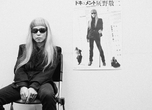
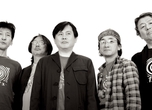
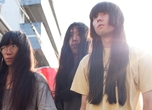
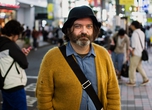
Add your comment